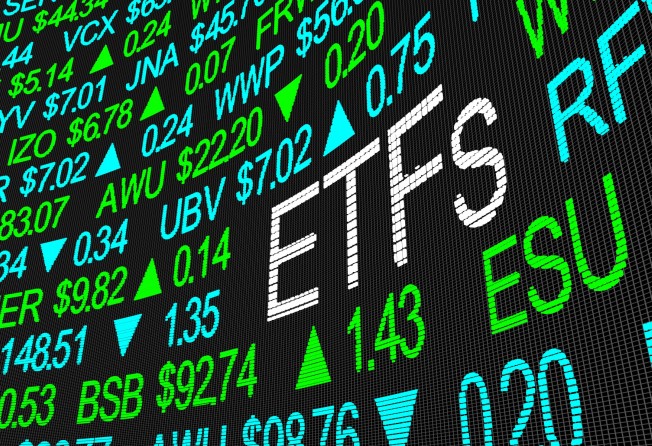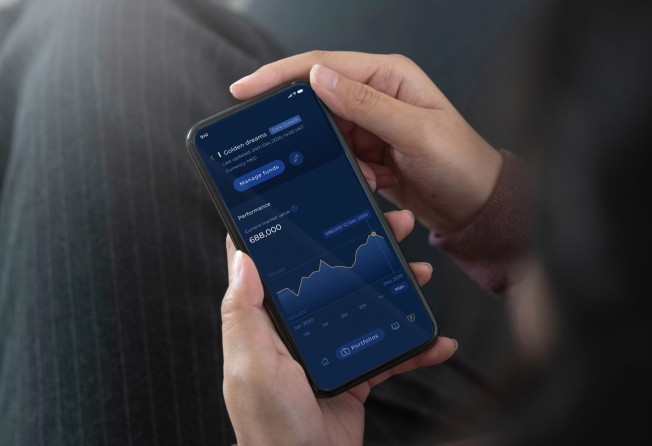
How should investors make sense of the current bear market?
- Covid-related economic impacts, followed by rising inflation, are creating uncertainty among investors worldwide
- Winnie Cheung, executive director in Hong Kong for investment platform Syfe, says it is important to maintain a long-term approach

[Sponsored article]
After battling the economic impact of the Covid-19 pandemic with US$16.9 trillion in fiscal measures implemented internationally, including unprecedented asset purchases by central banks and lowered interest rates, the world now faces a new set of challenges.
Central bankers had originally hoped that, as economic activity picked up, inflation would stabilise at a “sweet spot” – generally around 2 per cent – where there is just enough of an increasing price level to keep businesses profitable. Once sustained growth was obtained, the central bank would then be able to take measures to reduce its balance sheet through offloading.

As Covid-19 restrictions ease, consumers are ready to spend again, but the supply chain has yet to recover from the disruptions resulting from the pandemic. Add to that the war in Ukraine, which has caused oil prices to rise, and you have a recipe for persistent high inflation.
In July, the UK recorded a 10.1 per cent surge in the consumer price index (CPI) over the past 12 months. The Bank of England recently predicted that inflation would climb to 13 per cent this year, as it increased interest rates from 1.25 per cent to 1.75 per cent.
In the US, the CPI posted a 8.5 per cent year-on-year increase in July. A month earlier, the Federal Reserve raised interest rates for the fourth time this year, taking them to a benchmark range of 2.25 per cent to 2.5 per cent, the highest since 2019.
Should investors hold back for now?
All of these uncertainties have damaged investor confidence, causing many to exit their investments. In June, the S&P 500 Index hit bear market territory after falling more than 20 per cent from peak to trough. Although there have been signs of a market rebound in recent weeks, analysts caution that it is likely a rally and expect it to be short-lived.

Winnie Cheung, the executive director in Hong Kong for Syfe – a robo-advisory investment platform that offers retail investors well-diversified portfolios across stocks, bonds and gold, with exposure to different sectors and geographies – says investors should maintain a long-term outlook, and not just react to what is happening in the present.
“If you look at the past, there was uncertainty in the world every year,” she says. “Does it mean we should never invest until the picture is all clear?”
Cheung adds: “Many people remain indecisive because of uncertainty, and they end up missing investment opportunities.”
How to face the bear
The current bear market, which is being felt globally, may actually prove to be an opportunity for investors to acquire quality stocks at lower prices, thereby building stronger portfolios through diversification.
Cheung suggests taking a “cross-sectoral approach”, in which most capital is put into stable forms of investment, with the rest going towards more speculative choices.

“Keep a cash flow that could pay for basic living costs for eight to 10 months, and invest the rest based on one’s own risk tolerance,” she says.
It is a well-known fact that cash savings sitting idle in a bank account will lose buying power as time goes on, since the interest rate never keeps up with inflation in the long run.
“Things are only going to become more expensive,” Cheung says. “The earlier you start investing, the better the chance to leverage compounding with your investment to offset the effect of inflation. If you had US$100 in cash in 2008 and kept it uninvested, it would only be worth US$83 today.”
Finding the right tools
For people who do not feel confident about their market knowledge, Cheung suggests going with exchange-traded funds (ETFs), which track broad market indexes such as the S&P 500, as a safer and affordable investment option.
“Fund managers take at a minimum 1 to 2 per cent in management fees and performance-based commissions. But ETFs are passively managed, and the fee is as low as 0.25 to 0.3 per cent,” she explains. “Large-scale ETFs cost even less.”

These aspects, in addition to good performance, have made ETFs increasingly popular for all kinds of investors. Globally, ETF assets under management hit a record US$8.66 trillion at the end of June, inching closer towards the amount in mutual funds.
Indexing, in which a portfolio is designed to match the performance of a market index, is also considered to be a low-risk form of investment. This is because the history of global stock markets has shown that in the long run, stocks tend to trend upwards.
Despite markets going through the 2008 financial crisis and 2020 pandemic crash, and now with stocks in a bear market, the S&P 500 has still grown by about 200 per cent since January 2006. “With dividends reinvested, if you had invested US$100 in January 2006, you would have around US$345 today,” Cheung explains.
She adds: “Direct indexing goes further than ETFs, as the investor can build portfolios with the individual stocks that make up an index at an even lower cost.”
Passive can be better than active
A common school of thought is that actively managed assets will provide better yields, but studies have cast doubt on that approach. According to the SPIVA (S&P Indices vs Active) US Scorecard for 2020, 83 per cent of active fund managers underperformed their benchmarks over the previous 10 years.

It used to be that direct indexing was only available to institutional investors. But with its proprietary technology, Syfe promises a simple-to-use platform that gives retail investors in Hong Kong access to diversified, passive and low-cost portfolios, with an annual fee starting from 0.35 per cent.
The company’s in-house direct indexing process allows clients to directly own 100 individual US stocks, replacing the ETFs that track the overall US equities market. In addition to saving on fees, investors also gain a more transparent view of their holdings.
Cheung notes that although technology has made it possible for investors to manage their portfolios on their own, beginners may lack the knowledge and confidence to make informed decisions. Therefore, Syfe aims to offer tools that are designed and embedded with investment expertise, in order to help make investing a simple and hassle-free process.
Disclaimer: Information in this article is not and should not be construed as an offer to sell, or a solicitation of an offer to buy any security, investment product or service, nor a distribution of information for any such purpose. This advertisement is provided by Syfe Hong Kong Limited and has not been reviewed by the Securities and Futures Commission of Hong Kong. The screen displays and/or the images of the website are for reference and illustration purposes only.